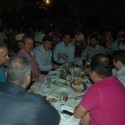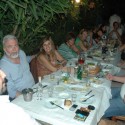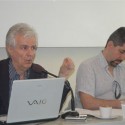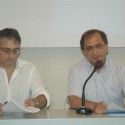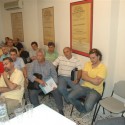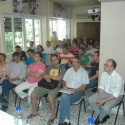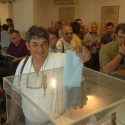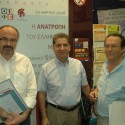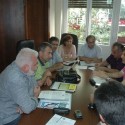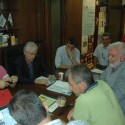In Asia, private tutoring dominates the lives of young people and their families, maintain and exacerbate social inequalities, divert needed household income into an unregulated industry, and create inefficiencies in education systems. Costs associated with “shadow education” are staggering, the report said adding in Pakistan, expenditures on tutoring per child averaged equivalent to $3.40 a month in 2011, a significant amount. In Hong Kong, China, the business of providing private tutoring to secondary schools reached $255 million in 2011 while in Japan, families spent a whopping $12 billion in 2010 on shadow education, the report said. (source The Express Tribune)
Στιγμιότυπα από το Συνέδριο της Ο.Ε.Φ.Ε.
Goakao
Of course, children of senior Communist Party members, government leaders and prominent businesspeople have their own back channels to admission, a phenomenon that exists, too, in the West, though perhaps not to the same degree.
Each year, cheating scandals become the talk of China. One common tactic was for students to give their identification cards to look-alikes hired to take the test; later, many provinces installed fingerprint scanners at test centers. In 2008, three girls in Jiangsu Province were caught with mini-cameras inside their bras; their aim was to transmit images of the exam to people outside the classroom who would then provide answers. This year, the big scandal involved students in Huanggang, Hubei Province, famous in the past decade for churning out students with high scores; several dozen students were caught there last month for using small monitors costing nearly $2,500 that resembled erasers and that allowed the students to receive electronic messages with test answers. (source The New York Times)
Πανκινεζικές ή Γκοουκόου με Κόκκινα Φροντιστήρια
Εκατομμύρια τελειόφοιτοι λυκείων σε όλη την Κίνα καλούν ειδικές τηλεφωνικές γραμμές ή μαζεύονται μαζί με συγγενείς τους γύρω από τον κομπιούτερ στο σπίτι τις τελευταίες ημέρες περιμένοντας έναν αριθμό σημαντικό για την υπόλοιπη ζωή τους. Αυτός ο αριθμός είναι το αποτέλεσμα των πιο σημαντικών εξετάσεων που μπορεί να κάνει ένας Κινέζος – του τεστ γκοουκόου -, των εξετάσεων που γράφουν οι νέοι προκειμένου να μπουν στο πανεπιστήμιο. Οι τελειόφοιτοι έκαναν το τεστ στη διάρκεια δύο ή τριών ημερών στις αρχές Ιουνίου. Τώρα τα γραπτά έχουν βαθμολογηθεί, ο βαθμός έχει υπολογισθεί και τα αποτελέσματα γνωστοποιούνται στη μια περιοχή μετά την άλλη. Στο τελικό στάδιο αυτής της διαδικασίας, που διαρκεί έως τις αρχές Ιουλίου, γίνεται η επιλογή των πανεπιστημίων. (πηγή τα Νέα , δείτε φίλτατοι σύντροφοι και τις φωτογραφίες του ρεπορτάζ , διαβάστε τους υπότιτλους και χαρίστε το άρθρο στους βαθυστόχαστους που επιτηδευμένα αγνοούν τα τεκταινόμενα στο παγκόσμιο χωριό της εκπαίδευσης)
A Solution to the Crisis
Pear Tree, which opened in March, advertises its program as a solution to the “crisis” in the education system. “Current educational methods do not meet the needs of either the economy or the children they serve,” its web-site states. “Children leave school and university lacking the skills they need to be successful and contribute to the growth of Canada’s economy.(By Janet Steffenhagen, Vancouver Sun)



